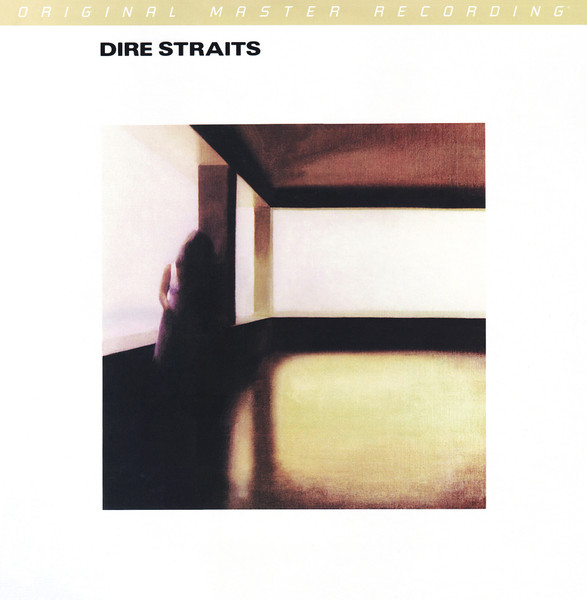A while back a friend of mine sent me a link to a video on Mike Esposito’s The In Groove Youtube channel. Perhaps you’re familiar with Mike as the guy who recently hatched the story about Mobile Fidelity Sound Lab, “audiophile” record reissuer and heavy user and recently revealed abuser of the term “Original Master.” Mike discovered that Mobile Fidelity, or MoFi, as they’re commonly known, has been using a digitization step in their supposed “all analog” mastering process.
The video my friend directed me to was a year or two before this MoFi story, and at the time I was struck by something Mike said. I’m paraphrasing here but in reference to Mobile Fidelity’s records, he says that are very often the “best version” of that record out there. The “best” version? Hmm…
Here’s another entry into my own response to this MoFi story where I do what more audiophiles really OUGHT to do and just play the darn things and see if they really do sound as good as Mike and many other collectors say they do. And in the interest of full disclosure I must admit, I approach this endeavor with a fairly heavy dose of skepticism, having never heard a single Mobile Fidelity record that I actually liked.
I started with Mobile Fidelity’s 2015 reissue of Miles Davis’s Kind of Blue. If you haven’t read my review of that record yet and you’d like to, you can find it here.
Next up is MoFi’s 45 rpm reissue of Dire Straits debut. That means of course that in order to put out such a record, Mobile Fidelity is forced to contribute another 360 grams of plastic to the environment, not to mention costing their customers several minutes of their lives as they’re forced to turn the record over twice and change them once in order to play the whole album. But I digress…
My first impression was that MoFi’s Dire Straits delivers plenty. In addition to the bloated, flabby bass and edgy, jarring guitars, you’ll get more than your fair share of top and bottom with little left in the midrange to flesh it out. You just can’t turn a record like this up because if you do, its flaws become both glaring and glaringly obvious.
Some folks out there, particularly those like Mike E. who are fans of Mobile Fidelity’s records, may very well enjoy a quality in this record that I’ve noticed on all of the MoFi’s I’ve heard, an initial WOW! factor that shrieks “audiophile” and makes lesser systems sound better than they are. MoFi’s records sound like they’ve been mastered with the levels pushed up at the top and bottom in an effort to highlight the details and beef up the low end.
What’s lost in the process becomes strikingly obvious when you hear a good vintage pressing. I borrowed an early Vertigo from a friend of mine and one listen to the sublime “Water of Love” was enough to show me everything that the MoFi was lacking. Air, space, natural sounding instruments and vocals, musicality and fluidity define this song and this recording.. All available in spades on this, a relatively run of the mill UK pressing and one very available at a very reasonable price.
It is absolutely beyond me why anyone would remaster such an album and take most of what’s great about it away, leaving in its place a lifeless waste of time and money. The drummer on “Sultans of Swing” sounds like he’s playing his kit with chopsticks for crimeny’s sake!
If you put MoFi’s cut of Dire Straits up against an early US pressing, you’d probably find at least one thing to like about the MoFi. It does sound like it was cut from a first generation or “Original Master” tape, and the US pressings do not. So if “cut from the master tape” is your only litmus test for a good sounding record, this one might be right up your alley.
Also, for systems that have trouble revealing good separation of instruments and struggle to reveal dynamics on a recording, this MoFi might sound better than it does on mine, a rather revealing one with reasonably good dynamic range.
How a particular record will sound to us will depend a lot on whether we’ve heard a good version of that record before, AND whether our stereo is any good at playing that record back. The irony of Mobile Fidelity is that they are marketing their records to audiophiles when, in fact, it’s the more casual vinyl fans with lesser systems and less well-trained ears that will enjoy them the most.
